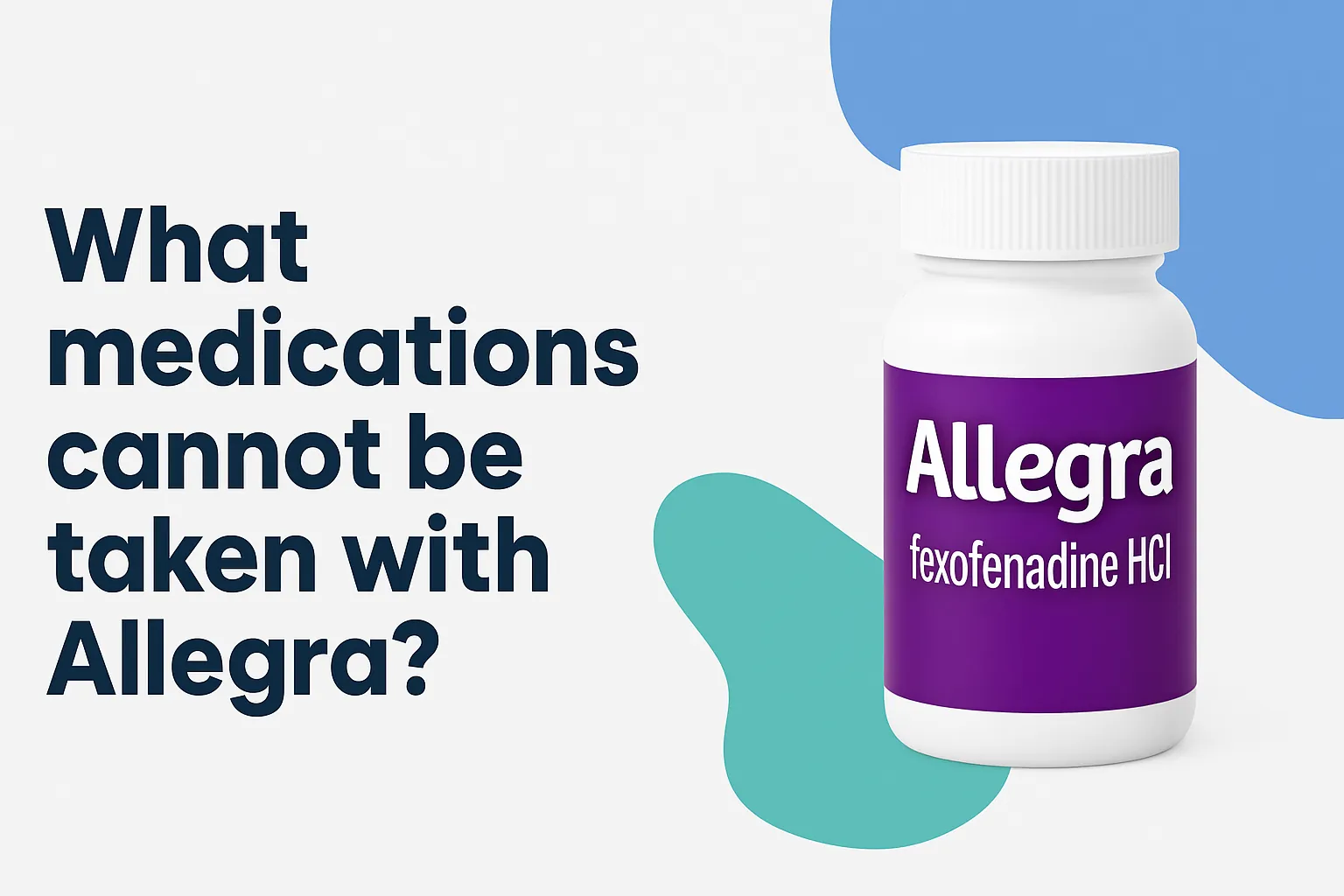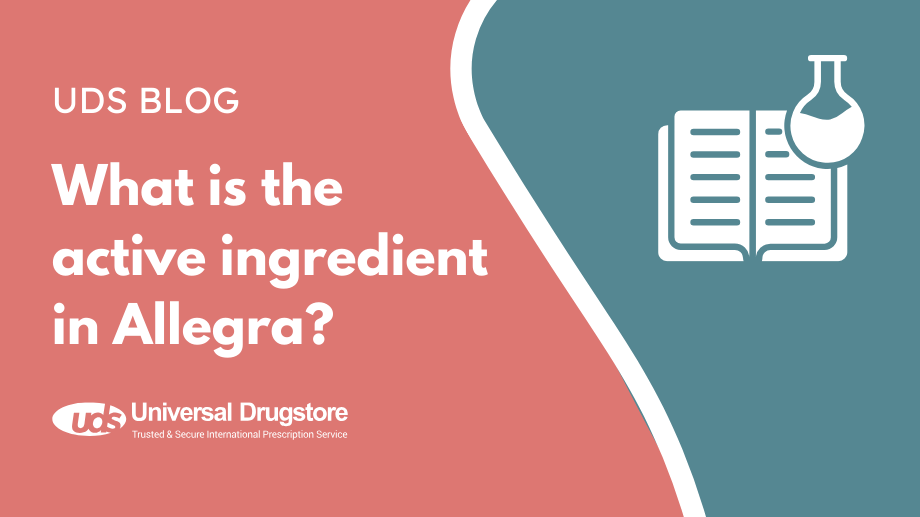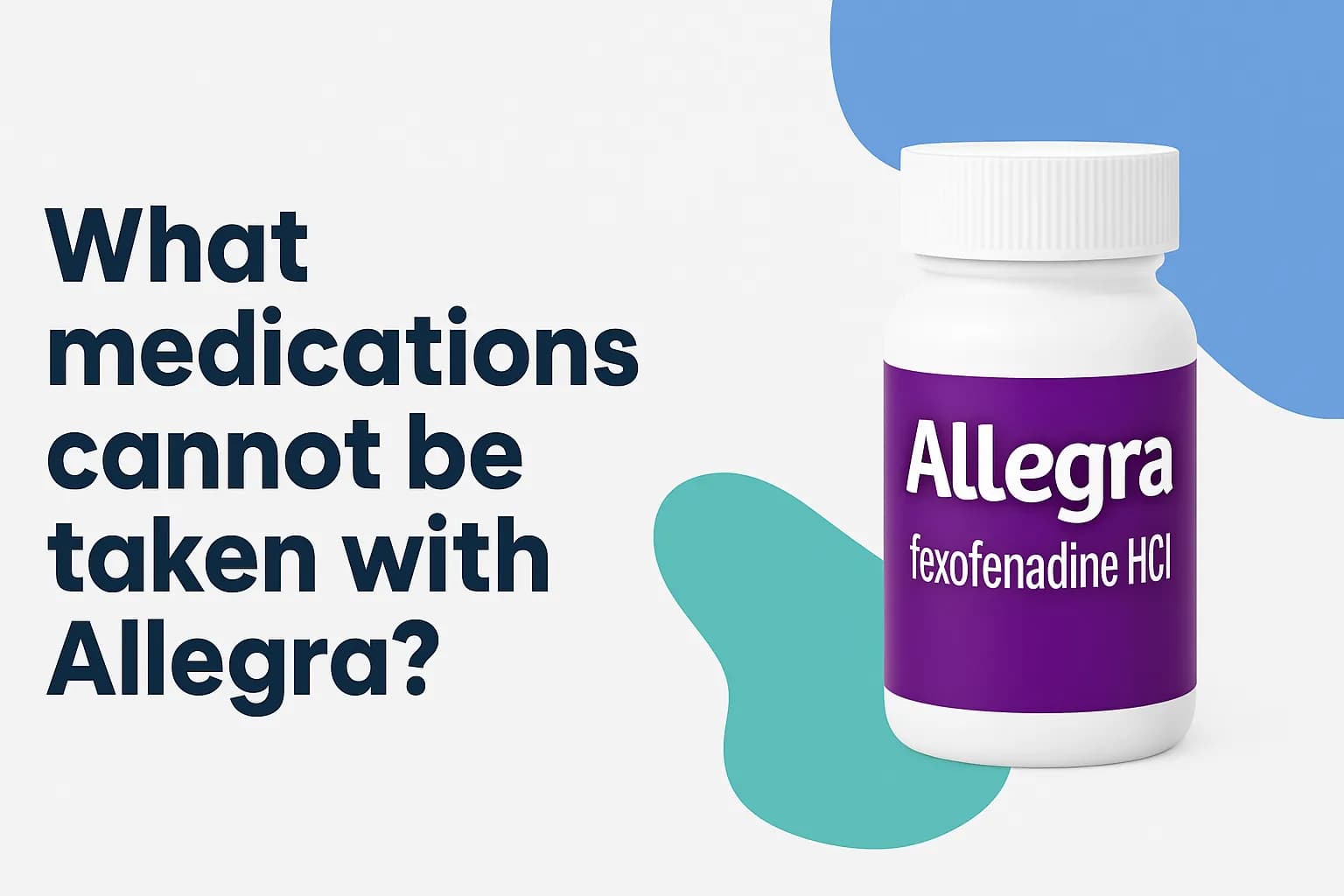What medications cannot be taken with Allegra?

Allegra (fexofenadine hydrochloride) is an over-the-counter (OTC) antihistamine that is taken once or twice daily to relieve seasonal allergy symptoms such as runny nose, sneezing, itchy eyes, and watery eyes. It is also used to treat skin itching and hives caused by a condition called chronic idiopathic urticaria.
Which medications are safe to take with Allegra and which should you avoid? Allegra is typically safe to combine with many over-the-counter drugs, including Tylenol (acetaminophen), Advil (ibuprofen), Sudafed (pseudoephedrine), and Flonase (fluticasone propionate).
There are, however, a handful of interactions with Allegra and it is important that you are aware of them. Some of them include:
Fruit juice
You should not drink fruit juices such as apple, grapefruit, and orange juice when you take Allegra. Taking it around the same time as drinking these juices can reduce how much Allegra is absorbed into your bloodstream and make it less effective. You can avoid this interaction by not drinking fruit juice within 4 hours before or 1 to 2 hours after taking this medication.
Green tea
This interaction is similar to the interaction with fruit juices. It can keep Allegra from absorbing into your body and make it not work as well. Be careful with green tea extracts and supplements because they can be concentrated and may need to be avoided.
Antacids
You will need to separate antacids that contain magnesium and aluminum by at least 2 hours of taking Allegra. Like the previous drug interactions, they can lower the amount of Allegra that is absorbed by your body, which can make it less effective. There are many OTC antacids that contain magnesium and aluminum so be sure to carefully read the labels so you know not to take them together. You can also try a different antacid such as Tums that contains calcium carbonate. It will not interact with Allegra.
Oral Nizoral (ketoconazole) and Ery-Tab (erythromycin)
Nizoral is given to treat severe fungal infections and Ery-Tab is an antibiotic that treats certain bacterial infections. While Allegra is minimally metabolized by the liver, studies have shown that these medications can increase the levels of Allegra in your body. This increases your risk of side effects. If you are taking Nizoral or Ery-Tab, talk with your healthcare provider about which allergy medicines are safe to take with them.
Other antihistamines
You should not take more than one oral antihistamine to treat hay fever (seasonal allergic rhinitis) or hives unless it is recommended by a healthcare professional. Taking 1 or more oral antihistamines along with Allegra such as Claritin (loratadine), Zyrtec (cetirizine), Xyzal (levocetirizine), Clarinex (desloratadine), and Benadryl (diphenhydramine) can increase your risk of side effects and may even lead to an overdose. Symptoms of an antihistamine overdose include fast heart rate, dry mouth, increased drowsiness, blurred vision, nausea, vomiting, confusion, and loss of balance. In severe overdose cases, you can have serious complications such as trouble breathing, cardiac arrest, seizures, and death. If someone has overdosed and has severe symptoms such as passing out, seizures or trouble breathing, call 911 immediately. Otherwise, call a poison control center at 1-800-222-1222 right away.
Medications that cause drowsiness
You should be very cautious taking Allegra along with other OTC medications, prescription drugs, or other substances that cause drowsiness. This can include alcohol, pain meds, antidepressants, anxiety or sleep meds, and marijuana (cannabis). Combining Allegra with these can cause increased drowsiness.
Allegra FAQs
What are the side effects associated with using Allegra?
The most common side effects of Allegra seen in clinical trials include:
- Nausea
- Diarrhea
- Upset stomach
- Upper respiratory tract infection
- Vomiting
- Back pain
- Drowsiness
- Fatigue
- Headache
- Fever
- Dizziness
- Menstrual cramps
Rarely, Allegra may cause serious side effects such as:
- Severe allergic reaction with symptoms such as hives, swelling in your face, tongue, and throat, chest tightness, and trouble breathing.
These are not all of the possible side effects of Allegra. You should always seek medical advice from your healthcare provider for any questions or concerns about your medical condition or treatment. Read all patient information, medication guides, or drug information sheets that come with this medication. You can also report adverse effects to the Food and Drug Administration at www.fda.gov/medwatch or call 1-800-FDA-1088.
Can you take Allegra with high blood pressure medications?
If you have allergies and also high blood pressure, Allegra should be safe. However, medicines containing decongestants, Allegra-D, could increase your blood pressure and heart rate or interfere with your heart medication. You should not take any cold medications if you have high blood pressure before talking with your healthcare provider. If you have a stuffy nose, you could try flushing your sinuses with a saline spray or rinse to relieve your congestion.
What should you do if you miss a dose of Allegra?
Allegra can be used when needed. If you are supposed to take it every day and miss a dose, take it as soon as you remember. If it is near the time of the next dose, skip the missed dose and take your next dose at its regular time. Do not double your dose to catch up.
How should you store Allegra?
Store Allegra tablets, gel caps, and oral suspension at a controlled room temperature between 68°F to 77°F (20°C to 25°C) away from moisture. Allegra ODT should also be stored at a controlled room temperature between 68°F to 77°F (20°C to 25°C). Foil-backed blister packs containing Allegra ODT should be protected from moisture and should not be removed from the original blister package until you are ready to use it.
Can you use Allegra while breastfeeding?
Studies have shown that Allegra is found in breast milk in small amounts. This amount is likely too low to cause problems for your baby. However, be sure to talk to your healthcare provider about all your breastfeeding questions and concerns. There are other options available if you do not want to take Allegra. Zyrtec (cetirizine) and Claritin (loratadine) are considered safe and are the recommended antihistamines when breastfeeding.
Related Medications
- Flonase Nasal Spray (fluticasone propionate)
- Nasacort Allergy 24 Hour (triamcinolone acetonide)
- Nasonex Nasal Spray (mometasone)
- Claritin (loratadine)
- Zyrtec (cetirizine)
- Xyzal (levocetirizine)
- Clarinex (desloratadine)
Sources
- Misaka S, et al. Clin Pharmacol Ther. 2022 Sep;112(3):627-634.
- Drug and Lactation Database. LactMed.
- Allegra. Medscape.
- Antihistamine Toxicity. StatPearls.
- FEXOFENADINE HCL tablet, film coated [package insert]. DailyMed.







